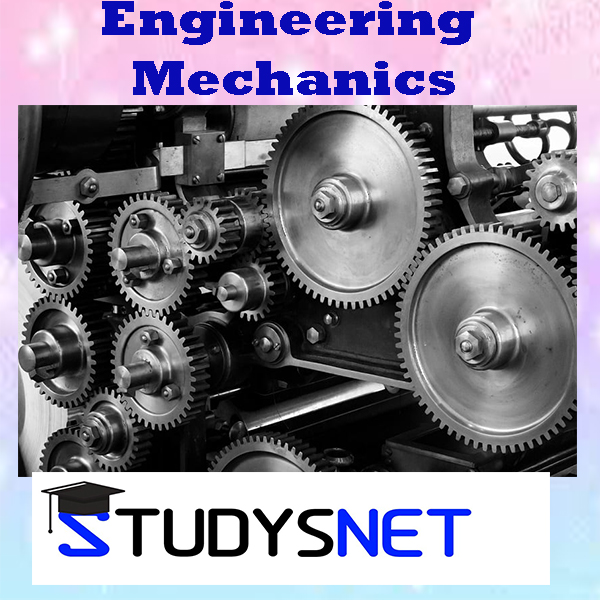Engineering Mechanics free videos and free material uploaded by Ramanjaneyulu K .
Objectives:
The students completing this course are expected to understand the concepts of forces and its resolution in different planes, resultant of force system, Forces acting on a body, their free body diagrams using graphical methods. They are required to understand the concepts of centre of gravity and moments of inertia and their application, Analysis of frames and trusses, different types of motion, friction and application of work - energy method.
UNIT – I
Objectives: The students are to be exposed to the concepts of force and friction, direction and its application. Introduction to Engg. Mechanics – Basic Concepts. Systems of Forces: Coplanar Concurrent Forces – Components in Space – Resultant – Moment of Force and its Application – Couples and Resultant of Force Systems. Friction: Introduction, limiting friction and impending motion, coulomb’s laws of dry friction, coefficient of friction, cone of friction
UNIT II
Objectives: The students are to be exposed to application of free body diagrams. Solution to problems using graphical methods and law of triangle of forces. Equilibrium of Systems of Forces: Free Body Diagrams, Equations of Equilibrium of Coplanar Systems, Spatial Systems for concurrent forces. Lamis Theorem, Graphical method for the equilibrium of coplanar forces, Converse of the law of Triangle of forces, converse of the law of polygon of forces condition of equilibrium, analysis of plane trusses.
UNIT – III
Objectives : The students are to be exposed to concepts of centre of gravity. Centroid: Centroids of simple figures (from basic principles ) – Centroids of Composite Figures Centre of Gravity: Centre of gravity of simple body (from basic principles), centre of gravity of composite bodies, Pappus theorems.
UNIT IV
Objective: The students are to be exposed to concepts of moment of inertia and polar moment of inertia including transfer methods and their applications. Area moments of Inertia: Definition – Polar Moment of Inertia, Transfer Theorem, Moments of Inertia of Composite Figures, Products of Inertia, Transfer Formula for Product of Inertia. Mass Moment of Inertia: Moment of Inertia of Masses, Transfer Formula for Mass Moments of Inertia, mass moment of inertia of composite bodies.
UNIT – V
Objectives: The students are to be exposed to motion in straight line and in curvilinear paths, its velocity and acceleration computation and methods of representing plane motion. Kinematics: Rectilinear and Curvelinear motions – Velocity and Acceleration – Motion of Rigid Body – Types and their Analysis in Planar Motion. Kinetics: Analysis as a Particle and Analysis as a Rigid Body in Translation – Central Force Motion – Equations of Plane Motion – Fixed Axis Rotation – Rolling Bodies.
UNIT – VI
Objectives: The students are to be exposed to concepts of work, energy and particle motion Work – Energy Method: Equations for Translation, Work-Energy Applications to Particle Motion, Connected System-Fixed Axis Rotation and Plane Motion. Impulse momentum method.
- Engineering Mechanics lecture notes unit-1
- Engineering Mechanics lecture notes unit-2
- Engineering Mechanics lecture notes unit-3
- Engineering Mechanics lecture notes unit-4
- Engineering Mechanics lecture notes unit-5
- Engineering Mechanics lecture notes unit-6

- 0 Reviews
- 23 Students
- 73 Courses

Write a public review